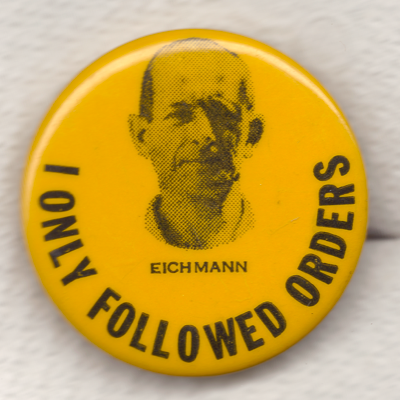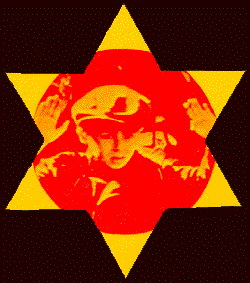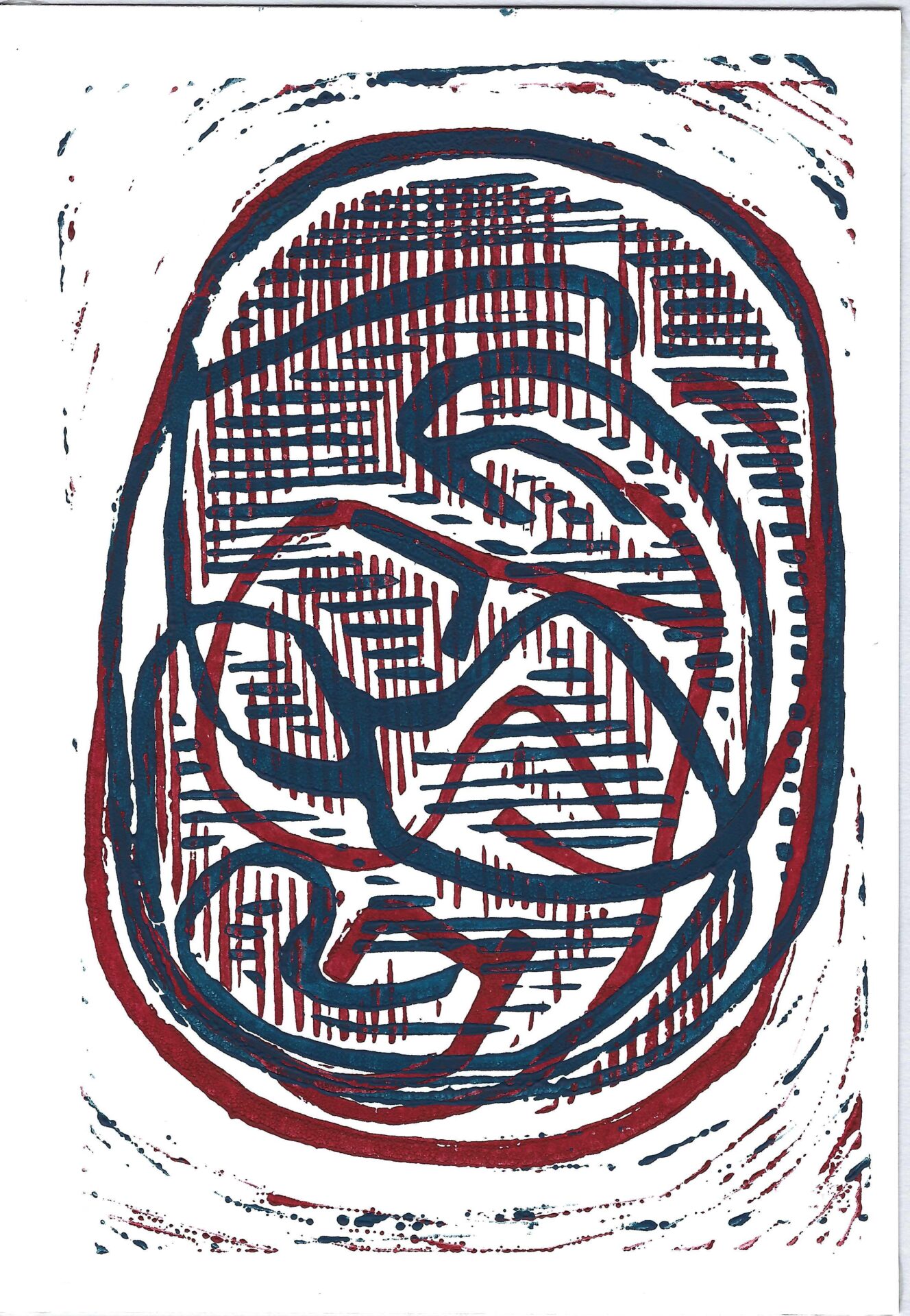you decide how to go
Last year (2009) at this time of Yom haShoah I wrote that I believe that all Jewish teenagers (at least) should experience a week of sho’a nightmares.
I was in my early 20s when I tried to imagine the life of the boy with his hands raised being led from the Ghetto. I spent months with him, I kept his image before me daily as I designed a leaflet to call Los Angeles Jewish youth to an event that would both commemorate Yom haShoah in 1970 and call on the U.S. government to ratify the Convention on the Prevention and Punishment of the Crime of Genocide (which it finally did more than fifteen years later). The design of the leaflet was, in a sense, a symbolic inversion of the flag of the State of Israel. The boy’s image turned a fiery red as the black closed in on him. Look in his eyes. He goes, not gently, but fearfully, even though I learned years later that he may not have died in the Sho’a.
but do not go gentle
[with apologies for the appropriation of that line]
The following year I was asked to present “greetings” from “the youth” at the annual Warsaw Ghetto Uprising commemoration event sponsored by the Jewish Federation-Council of Greater Los Angeles. I offer here the beginning, and most continually contemporary, of those words:
The week of Pesach, the festival of our liberation is over.
Today is the ninth day of the counting of the omer which we will continue another forty days until
Shavuot: the celebration of our receiving the Torah.
During the period between these two ancient holidays we commemorate the occurrence of two recent events.
Yom ha’Shoah—the day of the Holocaust
Yom ha’Atzmaut—the independence of the State of Israel
In this context
Shalom
Our liberation from slavery is symbolically complete;
wandering now in that chaotic period immediately following the winning of our freedom,
we are faced with the devastation of one of our largest and most creative communities.
We have returned to our oasis and have begun digging wells resolving never to be set adrift in the sands again.
The winds around us are turbulent and the risen dust clouds our way.
We have not yet received our Law and although we are liberated, we are not at peace.
This week (Shavua ha’Shoah) the scar that remains from our experience with Europe,
glows bright as we heighten our awareness of the Nazi horrors, Christian complicity and our own cowering silence.
“I only followed orders” was the answer:
as they drove their chariots after us into the mud,
as they aimed their artillery at our decimated bastions in Warsaw:
and as the waters of the sea flood over them we do not rejoice.
As I wrote last year, during that period I wore a button with a yellow star in identification with those who perished.

All this occurred during the height of the war in Vietnam. I was part of a group called the Jewish Radical Community. Among our various activities, we also published and distributed copies of a “People’s Peace Treaty”, (according to the Wikipedia) “part of a collaborative effort to end the Vietnam War by outlining a number of principles with which all sides could agree.” The edition we published included the text of the treaty as well as (sorry about the low quality of the old scans) “a Torah-based case against the war by Rabbi Moshe Adler” (part two), and a statement on “The Vietnam War and the Needs of the Jewish Community”.
I also frequently wore a different button that caused people to pause and think.

I Only Followed Orders (Eichmann)
| Date: | 1960s |
| Size: | 3.81 |
| Pin Form: | straight |
| Print Method: | celluloid |
| Text | EICHMANN I ONLY FOLLOWED ORDERS |
the banality of authority
Adolf Eichmann and the words “I only followed orders” on this button came to mind this week as I read an article about the strange and unpleasant dosado between Hannah Arendt and Raul Hilberg in The Nation (which I found at one of my favorite aggregating sites).
During the early 1980s I owned a used red Volvo P1800. It came with a bumper sticker affixed to the back that read “Question Authority”. I would often park the car in the official rabbi’s spot in the synagogue parking lot where I worked. Congregants frequently asked why a rabbi might encourage people to question authority. I responded that the earliest rabbis also stressed the importance of questioning the entrenched authorities of their day. I also told them the story of Isidor Isaac Rabi and his mother (which I have in the “Questioning” portion of A Growing Haggadah).
Nobel Prize winning physicist Isador Isaac Rabi’s mother did not ask him: “What did you learn in school today?” each day when he returned home. She asked him: “Did you ask a good question today?”
your orders
I have never been a soldier.
I have never been in a situation during which I was given an order that I might have considered so out of bounds that I would not in good conscience obey it. Perhaps I am naïve.
I have known of the Milgram experiment since the time its results were published, as well as our tendency to obey authority.
As I continue to wear the “I only followed orders” button this week, I know that I need to be constantly aware that there are tendencies in our world that will lead us to act in inappropriate ways.
So, during this time when we “have not yet received our Law” we need to work to ensure that we continue to ask good questions and distinguish between right and wrong orders.
your lapel buttons
Many people have lapel buttons. They may be attached to a favorite hat or jacket you no longer wear, or poked into a cork-board on your wall. If you have any laying around that you do not feel emotionally attached to, please let me know. I preserve these for the Jewish people. At some point they will all go to an appropriate museum. You can see all the buttons shared to date.



Mark,
You are a prophet in our own time .In the frightening spector of tea party (pre weimar Republic type) politics, your concern and sincerity , are comforting and inspirational!!!
Dick
Thank you Dick.
I am hardly a prophet. We all know that prophecy ended long ago. Nonetheless I do what I can to be sensitive to the issues around me.